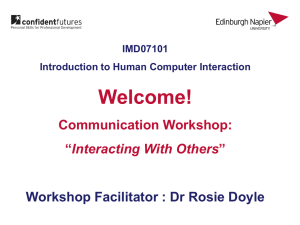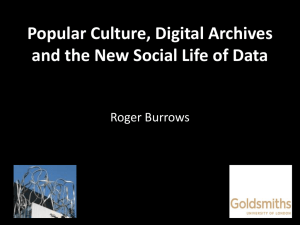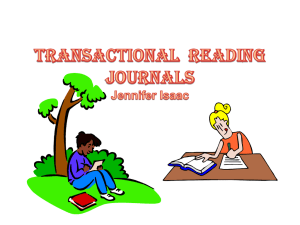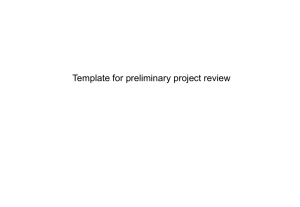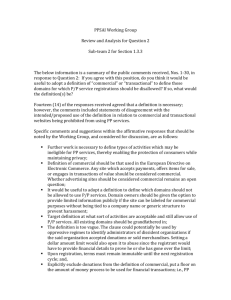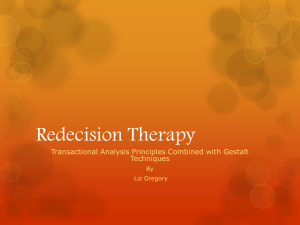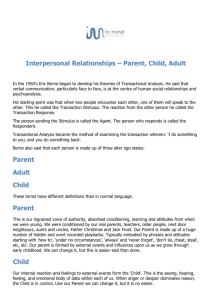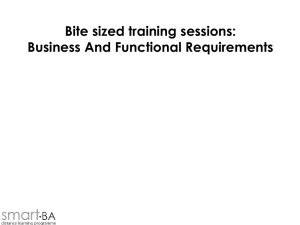Transactional Analysis
advertisement
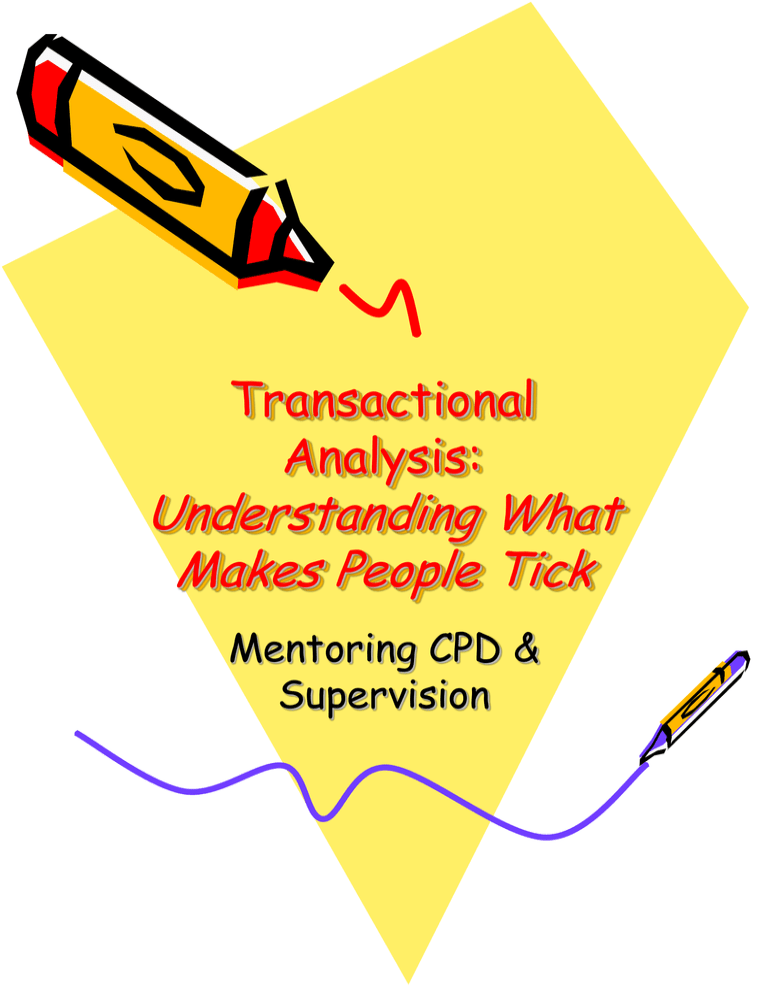
Transactional Analysis: Understanding What Makes People Tick Mentoring CPD & Supervision Transactional Analysis: What is it? • • • • – – – – – – Developed by Eric Bernes Post-Freudian It is: is a theory of personality a systematic psychotherapy for personal growth and personal change. It also offers: a theory of communication a theory of child development a diagnostic system for many types of psychopathological disorder and has been applied to education, management and communication training Transactional Analysis: What is it? • There are 3 philosophical premises of TA: – – – • People are OK; thus each person has validity, importance, equality of respect Everyone has the capacity to think. People decide their story and destiny, and these decisions can be changed. Therefore: – – people can change we all have a right to be in the world and be accepted The Key Ideas • The Ego-State (ParentAdult-Child) PAC Model Exercise One • In small groups discuss work related behaviours that would relate to – Parent – Adult – Child (you might want to think about personality types here too) • What types of language and ways of speaking/communicating would you associate with the different ego states? The Key Ideas Exercise Two • Again looking at language and behaviours in the workplace, what might apply to: – – – – – – – – Negative controlling parent Positive controlling parent Negative nurturing parent Positive nurturing parent Positive free child Negative free child Positive adaptive child Negative adaptive child The Key Ideas The Key Ideas Exercise three • How are contaminations useful and how do we use these productively? • When are contaminations not productive? • What ego state might you adopt to counter a negative contamination? How will this help? Drivers • Be perfect • Hurry up • Try hard • Be strong • Please Others Managing Drivers • Be perfect – address self worth & self esteem • Hurry up – encourage taking time • Try Hard – tackling perfectionism • Be Strong – provide opportunities to be open and to express feelings • Please Others - support disengagement from others’ needs and encourage engagement in looking after own needs Exercise four • Working in pairs, use your preferred mentoring technique to explore what your partner’s driver/drivers and help them identify a strategy to tackle them.

